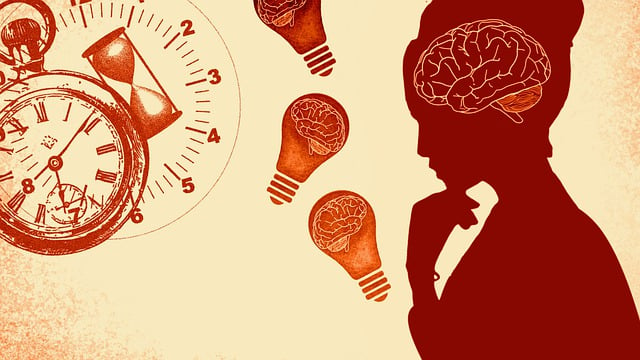Emotion-Focused Therapy (EFT) is a powerful tool for couples counseling, prioritizing emotional connection as the cornerstone of intimate partnerships. This approach encourages open dialogue about feelings, helping partners gain insights into each other's perspectives through active listening, validation, and effective communication. EFT guides couples in resolving conflicts constructively and rebuilding trust, creating a safe space to explore emotional underpinnings for lasting positive changes in their relationship dynamic. By focusing on emotional awareness and expression, EFT enhances couples counseling outcomes, fostering deeper intimacy and understanding.
Emotion-focused therapy (EFT) is a powerful approach transforming couples counseling by prioritizing emotional awareness and regulation. This therapeutic method recognizes that emotions drive relationship dynamics, helping partners identify and address underlying issues. By employing techniques like mindfulness and emotion expression, EFT fosters healthier communication and connection. The following article delves into the mechanics of EFT for couples, exploring its benefits, challenges, and practical integration into counseling practices, offering a comprehensive guide for enhancing relationships through emotional understanding.
Understanding Emotion-Focused Therapy for Couples

Emotion-Focused Therapy (EFT) is a highly effective approach for couples counseling, designed to help partners improve their relationships by exploring and expressing emotions. This therapy recognizes that emotional connection is at the heart of any intimate partnership. By fostering open dialogue about feelings, EFT enables couples to gain deeper insights into each other’s perspectives, fostering empathy and strengthening their bond.
The process involves helping individuals understand and accept their emotions, as well as those of their partner. Through active listening and validation, therapists guide partners in communicating their needs effectively, resolving conflicts constructively, and rebuilding trust. EFT encourages a safe space where couples can explore the emotional underpinnings of their relationship, leading to lasting positive changes in their dynamic.
The Role of Emotions in Relationship Dynamics

In the realm of couples counseling, understanding the intricate dance of emotions within relationships is paramount. Emotions serve as a powerful force that both fuels and reflects the dynamics between partners. They can either foster intimacy and connection or become barriers to effective communication. Recognizing this, emotion-focused therapy (EFT) for couples aims to help partners identify, express, and manage their emotions in healthier ways.
Through EFT, individuals learn to navigate the emotional landscape of their relationship, addressing underlying feelings that may have been ignored or suppressed. This process allows them to communicate more effectively, resolve conflicts, and deepen their bond. By embracing emotions as valuable information about their connection, couples can transform challenging interactions into opportunities for growth and strengthening their union.
Identifying Emotional Issues in Couples Counseling

In couples counseling, identifying emotional issues is a pivotal first step toward fostering positive change. Therapists skilled in emotion-focused therapy (EFT) facilitate a safe and non-judgmental space where partners can openly express their feelings, large or small. This process encourages deeper understanding of each other’s perspectives, helping to unmask underlying emotional patterns that may be contributing to relationship challenges. By paying close attention to these emotional cues, therapists enable couples to gain valuable insights into their dynamic, identify sources of conflict, and begin addressing them in a constructive manner.
During sessions, EFT encourages active listening, empathy, and validation—skills designed to strengthen communication and rebuild trust. Through this collaborative approach, partners learn to recognize and regulate their emotions effectively, fostering healthier interactions and ultimately enhancing the overall quality of their relationship. This process is crucial for couples counseling, as addressing emotional issues head-on paves the way for lasting resolution and growth.
Techniques and Strategies Employed in EFT

Emotion-focused therapy (EFT) for couples employs a range of powerful techniques designed to enhance emotional connection and communication between partners. At its core, EFT encourages individuals to explore and express their feelings, identifying and challenging unhelpful patterns that may have developed over time. One key strategy involves helping each partner become more attuned to their own emotions as well as those of their significant other. This deeper awareness allows for more nuanced responses, fostering an environment where understanding and empathy can flourish.
Additionally, EFT facilitates the use of specific communication skills, such as active listening and “I” statements, which promote open dialogue without blame or criticism. By encouraging couples to share their perspectives and deeply held beliefs, this approach aims to strengthen the bond between partners, resolve conflicts, and cultivate a deeper sense of intimacy. These strategies collectively work to transform negative interaction patterns into more constructive ways of engaging with each other, ultimately enhancing the overall satisfaction in the relationship.
Benefits of Using Emotion-Focused Therapy

Emotion-focused therapy (EFT) offers a powerful approach for couples seeking to improve their relationships. Unlike traditional problem-solving methods, EFT emphasizes the exploration and expression of emotions as a key to unlocking deeper connection and understanding between partners. By helping couples identify and process unspoken feelings, this therapeutic method facilitates open communication, fostering an environment where vulnerability is valued and appreciated.
One of the significant advantages of EFT for couples counseling is its ability to enhance emotional intimacy. Through encouraging active listening and empathetic responses, it enables partners to share their most authentic selves without fear of judgment. This process not only strengthens the bond between them but also equips them with valuable skills to navigate future conflicts constructively, ensuring a more fulfilling and resilient relationship.
Common Challenges and Misconceptions

Many couples approach emotion-focused therapy with misconceptions about what to expect. It’s important to understand that couples counseling isn’t just about fixing problems; it’s a collaborative process where both partners learn to understand and express their emotions effectively. One common misconception is that seeking help signifies failure, but in reality, it takes strength and courage to prioritize the relationship.
Another challenge arises from the fear of vulnerability. Couples may worry about sharing deep feelings, thinking it might create more conflict. However, emotion-focused therapy creates a safe space for this exploration, fostering honest communication and deeper connection. By addressing underlying emotional issues, couples counseling can help partners grow closer and build resilience together.
Integrating EFT into Couples Counseling Practices

Integrating Emotion-Focused Therapy (EFT) into couples counseling practices has emerged as a powerful approach to enhancing therapeutic outcomes. EFT is a highly effective method that emphasizes the exploration and expression of emotions, allowing couples to gain deeper insights into their relationships. By incorporating techniques such as emotional awareness, validation, and reflective listening, therapists facilitate an environment where both partners can openly communicate their feelings, fostering understanding and intimacy.
This therapy model encourages individuals to identify and manage their emotional responses, which is essential for resolving conflicts and strengthening bonds. In the context of couples counseling, EFT enables therapists to address underlying emotional issues that may be contributing to relationship challenges. Through this process, partners can develop better coping strategies, enhance their emotional intimacy, and cultivate a deeper sense of connection, ultimately leading to more fulfilling and lasting relationships.
